Got Any Questions?
Frequently Asked Questions
One of the benefits of choosing Khaki Tree CBD is that we are completely transparent with our products.
Ask any additional questions you may have in the form at the bottom of the page.
The human body, as well as other animals, has an endocannabinoid system (ECS). This system runs through our entire body and contains receptors that respond to the endocannabinoids we naturally produce. CBD, as well as other phytocannabinoids, are each almost molecularly identical to our own endocannabinoids, which is how they can interact with our endocannabinoid systems to some degree. The interaction with enzymes and activation of outside receptors is how CBD can impact our ECS indirectly.
All cannabis plants contain active compounds known as phytocannabinoids, a type of cannabinoid that our bodies don’t naturally produce. Both endocannabinoids and phytocannabinoids have the potential to stimulate and promote homeostasis in the body thanks to our endocannabinoid system.
Can CBD get you high?
The compound that is CBD is non-psychoactive and not able to get you high. However, it’s best to stick with a CBD brand that readily shows their lab reports and has every product batch tested, as failing to regularly test can lead to an inconsistent formula that contains too much THC or too little CBD.
As mentioned in the answer to the question directly above this one, a brand that doesn’t test every batch of their products can be liable to contain too much THC or too little CBD. If you’re taking a drug test for work, benefits, or even medical procedures, the amount of THC in your system matters. We can say our products are THC-free because they contain non-detectable levels of THC, and we recommend only a specific serving size per day to prevent any potential THC from building up in your body over time.
The short answer is no, CBD products shouldn’t make you fail a drug test – but overconsumption and inconsistent testing can lead to too much THC in your system, which will cause you to fail a drug test. It’s not the CBD that tests are looking at.
Distinct from cannabidiol oil, hemp seed oil contains a negligible amount of CBD, cannabinoids, terpenes and other beneficial hemp compounds. Rather, the hemp seed oil is produced by pressing hemp seeds; no different than sesame or corn oil.
Many shady companies across the web will sell solely hemp seed oil and pass it off as having a certain number of milligrams of hemp extract, but they don’t specify how much CBD or other cannabinoids are contained in the product. We look forward to a better-regulated CBD industry where things like this can be prevented from deceiving consumers who are unaware of the differences. In the meantime, just know that hemp seed oil is lacking the rest of the whole hemp plant, preventing any benefits you’re expecting from a CBD product.
CBD is derived from hemp. Hemp is the whole plant; CBD is a compound and cannabinoid found within it.
The US changed the legal definition of industrial hemp to mean any cannabis plant that contains less than 0.3% THC. Any strain that contains more THC than the legal maximum for hemp falls under marijuana, which is still part of the Controlled Substances Act on a federal level and only legal in specific states to some recreational or medical degree.
We are proud to say our products are THC-free, and we have lab results to back up what we say. Broad-spectrum, we maintain all cannabinoids, terpenes, and other beneficial compounds in the hemp plant but refine it of all THC, as well as other undesirable substances, like chlorophyll.
There can be. Raw hemp extracts and even some final formulas can contain trace amounts of THC, though our tests reveal non-detectable levels of THC for the hemp extracts used in our products.
There are no reported incidences of illnesses as a result of our CBD products, or any CBD oil for that matter. Always better safe than sorry, though, each batch of our products undergoes rigorous testing to guarantee that it’s free of potential contaminants or pollutants.
Always! We remain as transparent and honest as possible about every step of our process. You can view our lab results through our lab reports page.
As of a comprehensive update on the safety of CBD, there is no record of anyone overdosing. Non-toxic, there’s no amount large enough for it to be a fatal dose. With no detectable THC in any of our products, there’s no risk of overdose.
Even if there’s not an amount that’s fatal, large servings of CBD can stimulate drowsiness and dry mouth. While mild side effects, this is a great way to gauge if you should lower your CBD serving per day or not.
As mentioned, there can be some mild side effects to CBD if the serving size was too large. Large servings could cause drowsiness, dry mouth, and may affect your blood pressure to some degree.
Depending on the product you choose, we recommend taking CBD once or twice per day at a minimum. Cannabidiol can be taken multiple times a day, and many of our communities have integrated it into their daily routine to be able to take their CBD at the same time every day, morning or evening.
We always say you should take our CBD products as needed if you’re not following the serving suggestions, but there’s an optimal time during the day to take it still. Taking CBD after food minimizes the risk of potential side effects and amplifies its potential to provide benefits.

